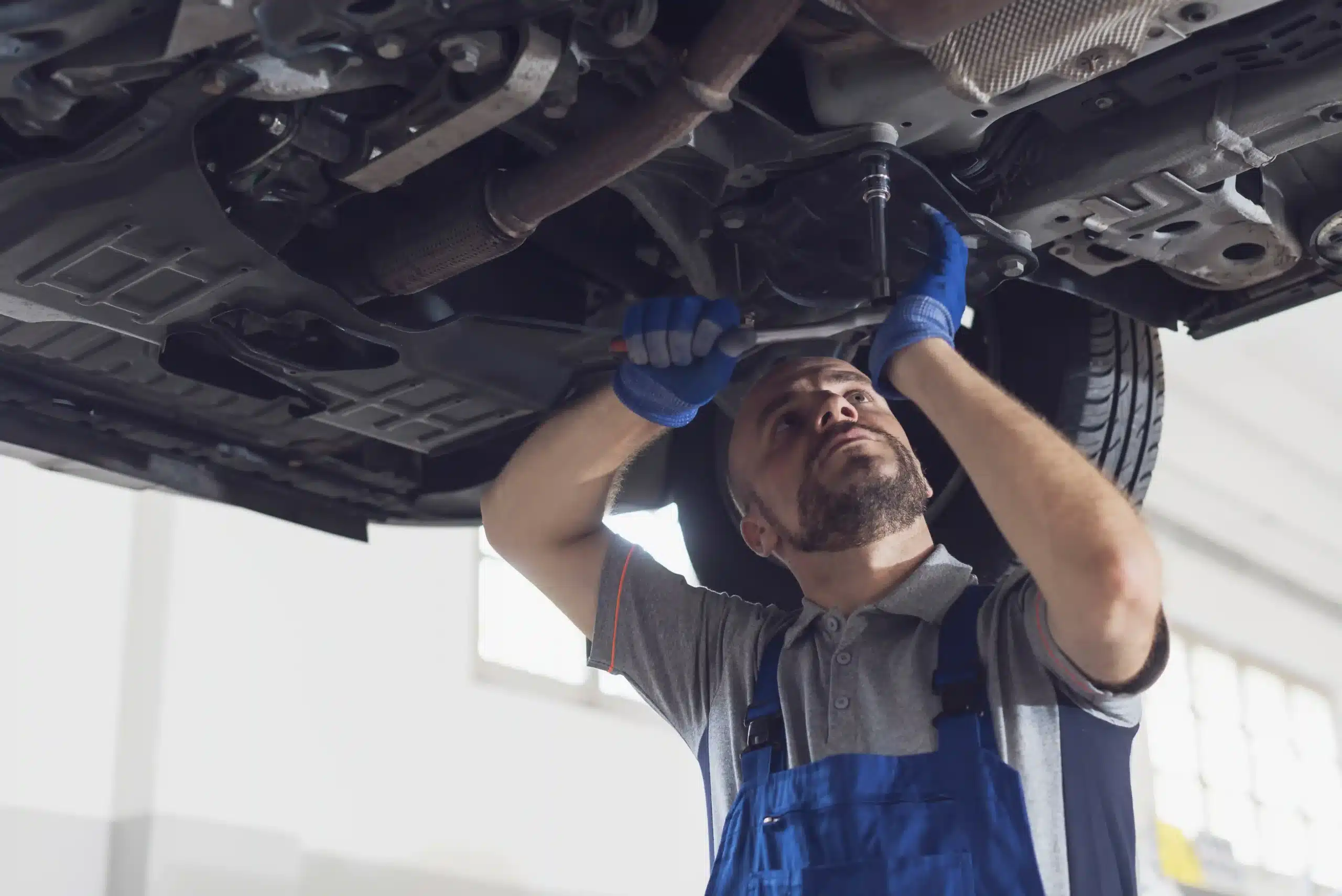Squeaky brakes can be quite alarming. You’re driving along peacefully when suddenly your car starts making that annoying squealing noise every time you apply the brakes. But should you panic, or is it just your car having a bit of a moan?
The truth is, when brakes squeak, it’s very common and often completely harmless. However, sometimes that squeaking noise can signal a problem that needs fixing. Understanding the common causes of squeaky brakes will help you work out the difference.
Why Do Brakes Squeak?
Your brake system works by pressing brake pads against metal discs (called brake rotors) to slow your car down. When these parts rub together, they can sometimes create noise. It’s a bit like chalk on a blackboard – not pleasant, but often not dangerous either.
When you apply the brakes on a cold morning, you might hear a thin layer of rust that’s formed overnight making noise as it gets scraped away. This is completely normal and nothing to worry about.
Here are the main reasons your brakes are squeaking:
Normal wear and tear – As brake pads wear down naturally, they can start to squeak. This is your brake system’s way of telling you when it’s time to replace your brake pads.
Weather conditions – Moisture from rain, humidity, or even washing your car can make brakes squeak temporarily. The noise usually goes away after applying the brake pressure a few times.
New brake pads – Brand new brake pads sometimes squeak for the first few hundred miles whilst they “bed in” to your brake rotors.
Dust and dirt – Road grime can build up on your brake calliper and pads, causing squeaking noises when applying brake force.
When Squeaky Brakes Are Normal
Don’t worry if your brakes squeak in these situations:
- First thing in the morning – especially if your car has been parked outside overnight and has a thin layer of rust on the brake rotors
- After washing your car – the moisture will dry off quickly when you apply the brakes
- For the first few stops – after sitting unused for a while
- In very humid weather conditions – this is quite common in the UK!
These squeaks usually disappear after a few minutes of driving as the moisture evaporates or the brake components warm up.
When You Should Be Concerned
Some squeaky brakes need urgent attention. Book an appointment straight away if:
The squeaking is constant – If your brakes squeak every single time you press the brake pedal, especially if it’s getting louder, this often means your brake pads are worn down and it’s time to replace your brake pads.
You hear grinding noises – This horrible metal-on-metal sound means your brake pads are completely worn down and you’re damaging your brake rotors. Stop driving and get help immediately.
The noise comes with other symptoms – If squeaking is joined by vibration through the brake pedal, longer stopping distances, or a spongy feel when you apply the brakes, something’s definitely wrong with your brake system.
High-pitched constant squealing – Many modern brake pads have built-in wear indicators that create a loud, high-pitched squeal when the pad or rotor needs attention. This is your car telling you it’s definitely time to replace worn brake components.
How to Stop Squeaky Brakes
The best way to stop squeaky brakes depends on what’s causing the problem. Here are the most effective solutions:
For normal morning squeaks – Simply drive gently for the first few minutes. The thin layer of rust will scrape away naturally when you apply the brakes.
For moisture-related squeaks – Let the brake system dry out by using your brakes normally. The squeaking noise should stop once the moisture evaporates.
For worn-down brake pads – You’ll need to replace your brake pads. This is not a DIY job and requires professional attention to ensure your brake system works properly.
For contaminated pad and rotor surfaces – Professional cleaning or brake component replacement may be needed, depending on the level of contamination.
The key is getting your brakes checked by qualified mechanics who can identify exactly which pad or rotor is causing the problem.
The Safety Factor
With around 1,700 people dying on UK roads each year and thousands more seriously injured, proper brake system maintenance is vital for everyone’s safety. Your brakes are literally what keep you and others safe on the road.
At First Auto Centre, we see many cars where simple brake maintenance could have prevented bigger problems. Worn-down brake pads that aren’t replaced in time can damage your brake rotors, turning a £60 pad replacement into a £200+ pad and rotor job.
What Should You Do?
If you’re unsure whether your brakes are squeaking for normal reasons, the safest approach is to get your brakes checked. Our experienced mechanics at First Auto Centre can quickly tell you whether the squeaking noise is normal wear, weather conditions, or a sign that you need to replace your brake pads.
During our brake inspection, we’ll check:
- Brake pad thickness and whether it’s time to replace worn components
- Brake rotor condition and wear
- Brake fluid levels and brake system performance
- The overall condition of your brake calliper and other components
Remember, brake problems don’t fix themselves. They only get worse and more expensive to repair. What starts as a minor squeak can become a dangerous situation if left unchecked.
Prevention Is Better Than Cure
Regular brake system maintenance helps prevent problems before they start. The government’s Highway Code emphasises the importance of keeping your brakes in good working order, stating that “brakes, steering, exhaust system, seat belts, demisters, wipers, washers and any audible warning systems are all working” should be checked regularly.
We recommend having your brakes checked:
- As part of your annual MOT
- If you notice any changes in how they feel or sound
- Every 12,000-15,000 miles as part of routine servicing
For more detailed information about brake maintenance requirements, you can read the official government guidance on vehicle maintenance in the Highway Code.
Our team has over 20 years of combined experience in automotive care, and we’re based right here in East Ham at 1 Lawrence Road. We offer competitive pricing and warranties on most services, so you can have peace of mind knowing your brakes are in safe hands.
The Bottom Line
Not all squeaky brakes are a cause for alarm, but it’s always better to be safe than sorry. If you’re in any doubt about unusual noises from your brakes, pop in for a quick check. Our brake repair specialists can diagnose the issue and give you honest advice about what needs to be done.
Your safety on the road matters – and with proper brake care, you can drive with confidence knowing your car will stop when you need it to.








